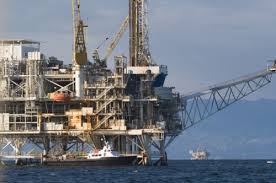How does Decomissioning work?
By Jaime Kammerzell

Decommissioning oil and gas installations can cost operators an average of $4-$10 million in the shallow water Gulf of Mexico. Thus when the US Department of the Interior Bureau of Ocean Energy Management, Regulation, and Enforcement (BOEMRE) Gulf of Mexico OCS Region issued a new decommissioning regulation in September 2010, operators knew they'd take a hit.
NTL 2010-G05 requires wells that have not been used for the last five years to be to be permanently abandoned, temporarily abandoned, or zonally isolated within 3 years after Oct. 15, 2010. If wells are zonally isolated, operators have 2 additional years to permanently or temporarily abandon the wellhead. Plus, platforms and supporting infrastructure that have been idle for five or more years must be removed within 5 years as of the Oct. 15, 2010 effective date.








